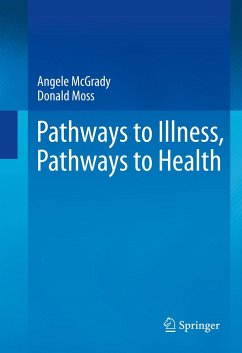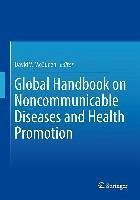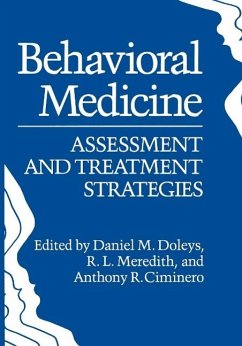
Pathways to Illness, Pathways to Health (eBook, PDF)
Versandkostenfrei!
Sofort per Download lieferbar
72,95 €
inkl. MwSt.
Weitere Ausgaben:

PAYBACK Punkte
36 °P sammeln!
This book, designed for professionals, introduces a psychobiological model for understanding the paths that lead people to illness and provides recommendations for alterations of maladaptive pathways so that health is regained. Research findings are incorporated to identify causal variables for illness that can be targets for change. Evidence based recommendations for healthy behaviors and therapies are described. Throughout the book, the authors emphasize recognition of turning points on the path to illness that, through informed decision making and implementation of behavioral change, can be...
This book, designed for professionals, introduces a psychobiological model for understanding the paths that lead people to illness and provides recommendations for alterations of maladaptive pathways so that health is regained. Research findings are incorporated to identify causal variables for illness that can be targets for change. Evidence based recommendations for healthy behaviors and therapies are described. Throughout the book, the authors emphasize recognition of turning points on the path to illness that, through informed decision making and implementation of behavioral change, can be re-directed to pathways to health. This book presents case material to illustrate the directions that lead people to illness or to health. The pathways metaphor provides an organizing force, both in addressing variables contributing to illness onset, and in identifying interventions to restore health. This approach will guide the clinician to understanding how people become ill and the types of interventions that are appropriate for stress related illnesses. The clinician will also become better informed about ways to help clients make better decisions, mobilize clients' survival skills, and implement an interactive model of care. The book includes chapters on stress-related illnesses with high prevalence in today's society. For each illness, the genetic-psychobiological etiology is explored with enough detail so that the clinician understands the best method of patient assessment and treatment. One of the strengths of the book is the step-wise system of interventions that are applied to the stress-related illnesses. Beginning with re-establishment of normal daily psychobiological rhythms and continuing to evidence based state of the art interventions, the professional is presented with detailed intervention plans.
For example, the section on "Applications to common illnesses: metabolic disorders of behavior: diabetes, hypertension, and hyperlipidemia"considers the confluence of genetics, behavior, and maladaptive mind body interactions to produce the metabolic syndrome. Then the personal and professional assessments are described to establish the baseline for recommending treatment while fully engaging the patient. Finally, multilevel interventions are formulated for these disorders. The plan begins with clinician guided self care recommendations to re-establish the normal rhythm of appetite and satiety. The next level of interventions consists of skill building techniques, such as relaxation and imagery. Lastly, psychotherapy and advanced applied psychophysiological interventions are detailed. Case examples are used throughout to illustrate the pathways to illness, the turning points, and the pathways to health. From the patients' viewpoints, the pathways metaphor is a motivator. The patient is guided to understand the paths that led to illness. Subsequently, the patient becomes empowered by the pathways framework to begin to make choices that lead to health.
For example, the section on "Applications to common illnesses: metabolic disorders of behavior: diabetes, hypertension, and hyperlipidemia"considers the confluence of genetics, behavior, and maladaptive mind body interactions to produce the metabolic syndrome. Then the personal and professional assessments are described to establish the baseline for recommending treatment while fully engaging the patient. Finally, multilevel interventions are formulated for these disorders. The plan begins with clinician guided self care recommendations to re-establish the normal rhythm of appetite and satiety. The next level of interventions consists of skill building techniques, such as relaxation and imagery. Lastly, psychotherapy and advanced applied psychophysiological interventions are detailed. Case examples are used throughout to illustrate the pathways to illness, the turning points, and the pathways to health. From the patients' viewpoints, the pathways metaphor is a motivator. The patient is guided to understand the paths that led to illness. Subsequently, the patient becomes empowered by the pathways framework to begin to make choices that lead to health.
Dieser Download kann aus rechtlichen Gründen nur mit Rechnungsadresse in A, B, BG, CY, CZ, D, DK, EW, E, FIN, F, GR, HR, H, IRL, I, LT, L, LR, M, NL, PL, P, R, S, SLO, SK ausgeliefert werden.












